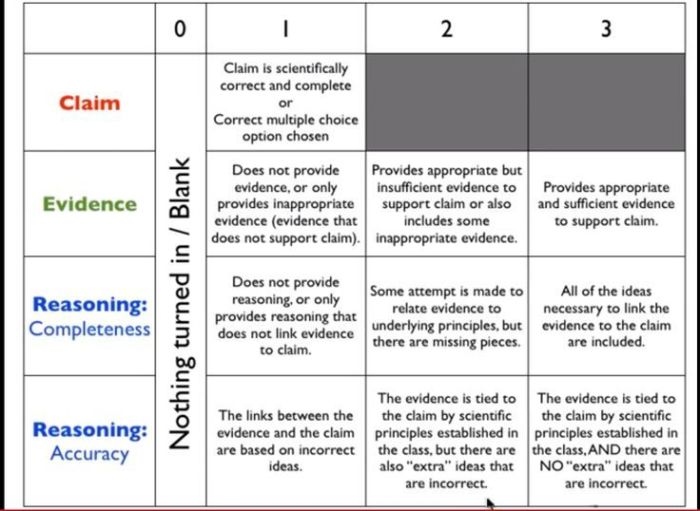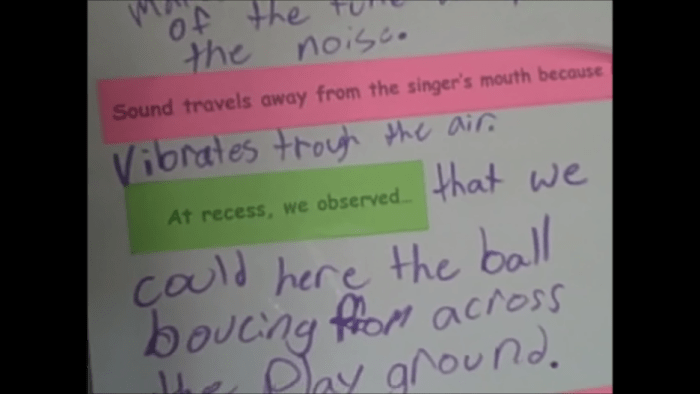Claim evidence reasoning sentence starters – Claim, evidence, reasoning sentence starters are the foundation of persuasive writing, empowering authors to construct compelling arguments. These sentence starters serve as a roadmap, guiding readers through the intricate tapestry of claims, evidence, and reasoning, ensuring a coherent and impactful narrative.
By mastering the art of crafting claim-evidence-reasoning statements, writers can transform their prose into a persuasive force, effectively conveying their ideas and swaying the opinions of their audience.
Claim-Evidence-Reasoning Structure

The claim-evidence-reasoning structure is a fundamental framework for constructing persuasive arguments in writing. It involves making a claim, providing evidence to support the claim, and explaining the reasoning that connects the evidence to the claim. This structure ensures logical and well-supported arguments that are easily understood by readers.
Claims are statements that express the writer’s position or perspective on a topic. Evidence refers to specific facts, data, or examples that provide support for the claim. Reasoning involves explaining how the evidence supports the claim and demonstrates its validity.
The claim-evidence-reasoning structure is essential for effective communication as it allows writers to present their arguments in a clear and convincing manner, enabling readers to critically evaluate the validity and credibility of the claims made.
Identifying Claims
- The author asserts that…
- The text claims that…
- The writer argues that…
- The passage implies that…
Claims can be either explicit, stated directly in the text, or implicit, inferred from the evidence presented.
Gathering Evidence
- Facts: verifiable data, statistics, or historical events
- Examples: specific instances or illustrations
- Expert opinions: statements from individuals with specialized knowledge
- Anecdotes: personal experiences or stories
- Research studies: findings from scientific or academic investigations
Evidence should be credible, relevant, and sufficient to support the claim.
Reasoning, Claim evidence reasoning sentence starters
Reasoning involves using logic and critical thinking to connect the evidence to the claim. It explains why the evidence supports the claim and demonstrates the validity of the argument.
- Deductive reasoning: draws a general conclusion from specific evidence
- Inductive reasoning: makes a general claim based on specific observations
- Analogical reasoning: compares two similar situations to draw a conclusion
Valid reasoning is based on sound logic and avoids logical fallacies, such as hasty generalizations or ad hominem attacks.
Writing Claim-Evidence-Reasoning Statements
| Claim | Evidence | Reasoning |
|---|---|---|
| The Earth’s climate is changing. | Average global temperatures have risen by 1.1 degrees Celsius since the late 19th century. | The increase in greenhouse gases in the atmosphere traps heat, leading to a rise in temperatures. |
Effective claim-evidence-reasoning statements are clear, concise, and avoid logical fallacies. They present a well-supported argument that is persuasive to readers.
FAQ: Claim Evidence Reasoning Sentence Starters
What is the significance of using claim, evidence, reasoning sentence starters?
Claim, evidence, reasoning sentence starters provide a structured framework for presenting arguments, ensuring clarity, coherence, and persuasiveness.
How can I identify claims in a text?
Look for sentence starters that indicate a claim, such as “I believe,” “It is evident,” or “The fact is.”
What types of evidence can I use to support my claims?
Evidence can include facts, statistics, examples, expert opinions, and personal anecdotes.
How can I avoid logical fallacies in my reasoning?
Be aware of common logical fallacies, such as ad hominem attacks, straw man arguments, and circular reasoning.

